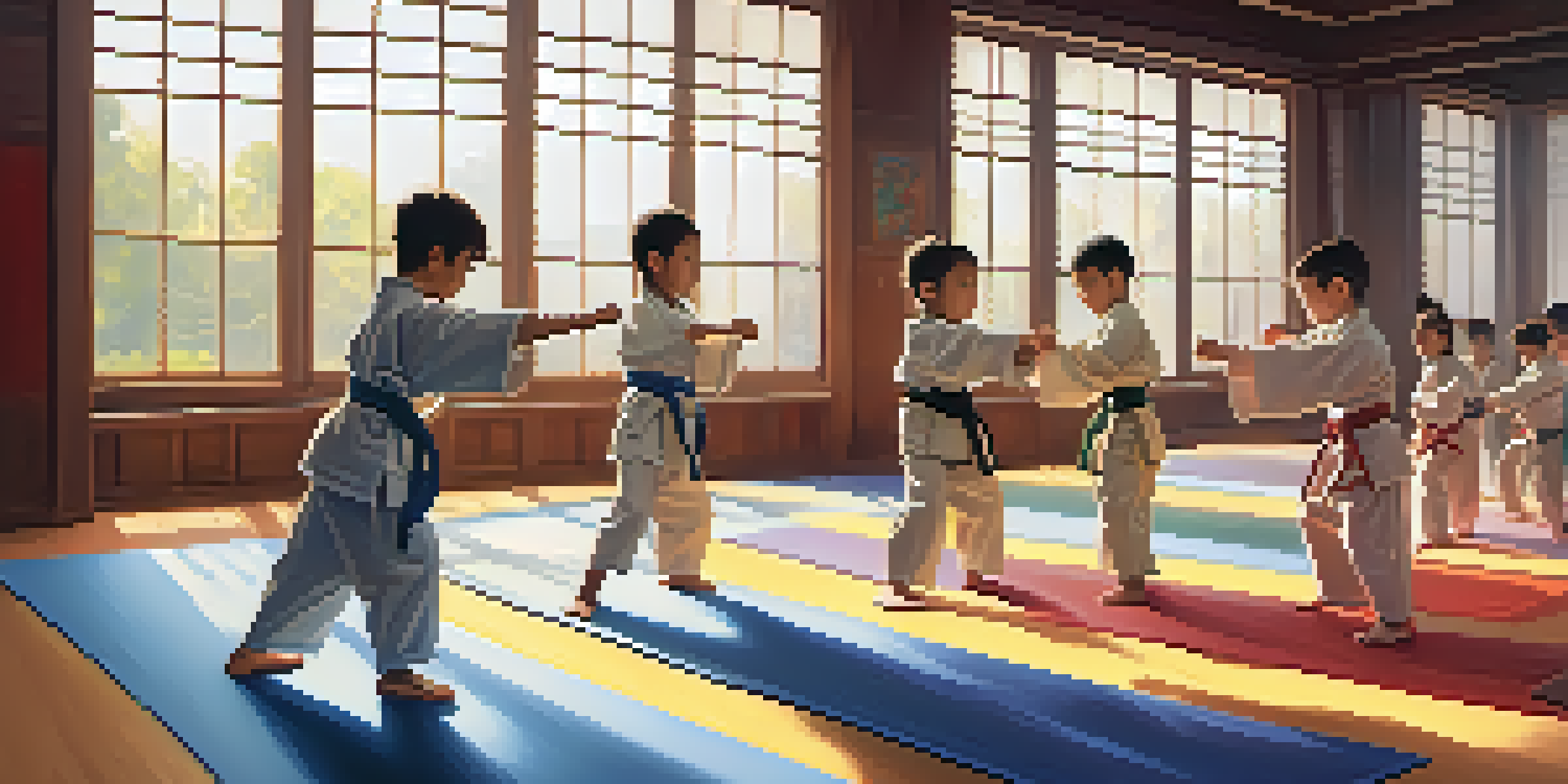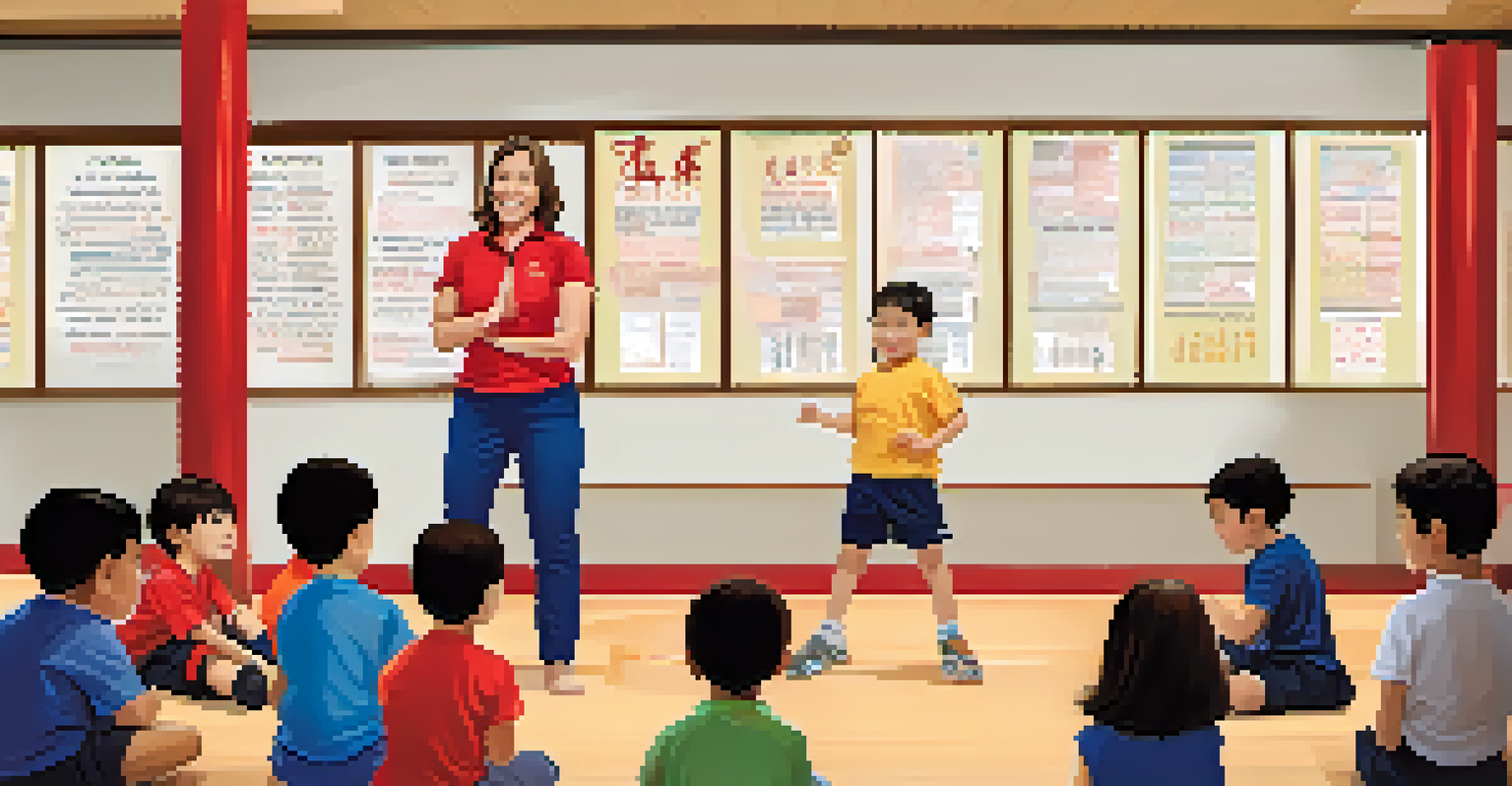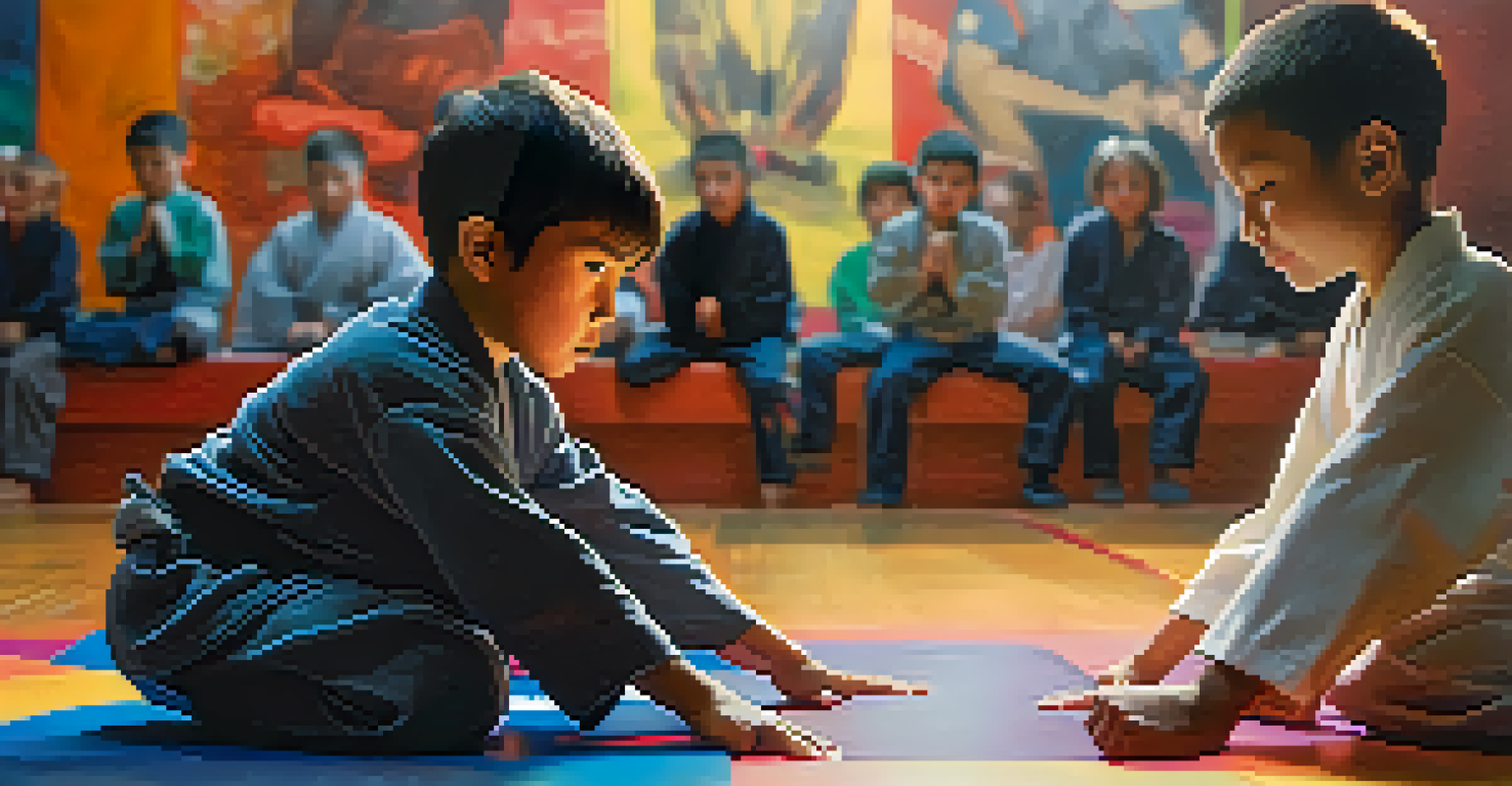Building Teamwork Skills Through Kids' Self Defense Classes

Understanding the Importance of Teamwork in Kids
Teamwork is a crucial skill that children need as they grow. It helps them learn how to cooperate, communicate, and solve problems together. In today's world, where collaboration is vital in both school and later in the workplace, fostering these skills early on can set the stage for future success.
Alone we can do so little; together we can do so much.
Self-defense classes provide a unique environment where teamwork is not just encouraged, but essential. Kids must rely on one another for practice and support, whether they are paired up for drills or working together in group scenarios. This builds a sense of camaraderie that is not easily replicated in other settings.
Moreover, engaging in team-based activities within self-defense classes can enhance kids' social skills. They learn to respect each other's strengths and weaknesses and develop empathy, which are valuable traits both on and off the mat.
Self-Defense Techniques That Promote Cooperation
Many self-defense techniques require partners to practice effectively. For example, executing a throw or a joint lock involves precise timing and coordination, which can only be achieved through teamwork. This not only sharpens their skills but also reinforces the idea that working together leads to better outcomes.

During practice, children quickly realize that they can’t succeed alone. They must communicate clearly and give constructive feedback to their partners. This open line of communication fosters trust and builds a supportive learning environment that encourages growth.
Teamwork Boosts Kids' Confidence
The supportive atmosphere in self-defense classes helps children build resilience and confidence through shared experiences.
Additionally, learning self-defense techniques together helps children develop problem-solving skills. They must think critically about how to apply what they've learned, often leading to discussions about strategy and tactics, further cementing their teamwork skills.
Building Confidence Through Team Support
Self-defense classes can be intimidating for kids, especially those who are new to martial arts. However, the supportive atmosphere created by teamwork can significantly boost their confidence. When children cheer each other on and celebrate small victories, it makes the learning process much more enjoyable.
Teamwork is the ability to work together toward a common vision. The ability to direct individual accomplishments toward organizational objectives. It is the fuel that allows common people to attain uncommon results.
As they practice together, kids learn to be more resilient. They see that everyone makes mistakes and that it's okay to stumble along the way. This shared experience fosters a growth mindset, where they understand that improvement comes through effort and collaboration.
Moreover, as their confidence builds, children become more willing to take on challenges, both in the dojo and in other aspects of their lives. This newfound confidence can translate into better performance in school and social situations, reinforcing the importance of teamwork.
Lessons in Leadership from Self-Defense Classes
Self-defense classes often feature scenarios where children must take turns leading their partners through drills. This gives them a chance to practice leadership skills in a safe and encouraging environment. Learning to lead not only boosts their self-esteem but also helps them appreciate the value of teamwork.
In these situations, kids learn how to give clear instructions, listen actively, and adapt to their partner's needs. They discover that effective leadership is about uplifting others while guiding them, which is a skill that will serve them well in any group setting.
Communication is Key in Teamwork
Self-defense classes foster effective communication skills as kids articulate intentions and provide constructive feedback to one another.
Furthermore, witnessing their peers step up as leaders can inspire children to embrace leadership roles themselves. This dynamic creates a cycle of empowerment, where kids encourage each other to grow, fostering a strong sense of community within the class.
Developing Communication Skills Through Practice
Effective communication is a cornerstone of teamwork, and self-defense classes provide ample opportunity for kids to practice this skill. In order to execute techniques safely and correctly, they must verbalize their intentions and listen to their partner's feedback. This back-and-forth dialogue is crucial for successful collaboration.
As children engage in these exchanges, they learn to articulate their thoughts and feelings more clearly. This practice helps them become more confident communicators, which is beneficial not just in martial arts, but in their everyday interactions as well.
Additionally, the emphasis on communication in self-defense reinforces the idea that everyone has a voice. Kids learn to respect differing opinions and find common ground, which are essential skills for effective teamwork in any setting.
Overcoming Challenges Together in Class
Every child faces challenges when learning self-defense, whether it's mastering a new technique or overcoming fear. However, the collaborative nature of the classes allows them to tackle these challenges together. When they support each other during tough moments, it strengthens their bonds and fosters resilience.
Sharing struggles and celebrating successes as a team creates a sense of belonging. Children learn that they are not alone in their journey, which helps them develop a positive attitude toward facing obstacles in life.
Leadership Skills Through Practice
Engaging in leadership roles during drills allows kids to practice guiding others, enhancing their self-esteem and teamwork appreciation.
This collective approach to overcoming challenges teaches kids that teamwork can make difficult tasks more manageable. It instills a belief that, together, they can achieve more than they could ever achieve alone.
The Lasting Impact of Teamwork Skills Beyond the Dojo
The teamwork skills developed in self-defense classes extend far beyond the dojo. As kids learn to work together, communicate effectively, and support one another, they carry these lessons into their classrooms, sports teams, and social circles. The ability to collaborate is a skill that is increasingly sought after in every aspect of life.
Moreover, children who engage in teamwork activities often become more empathetic individuals. They are more likely to understand and appreciate the perspectives of others, which can lead to stronger friendships and healthier relationships.

Ultimately, the teamwork skills fostered in self-defense classes lay the groundwork for future success. By learning to work well with others, children are better equipped to navigate the complexities of life, both personally and professionally.